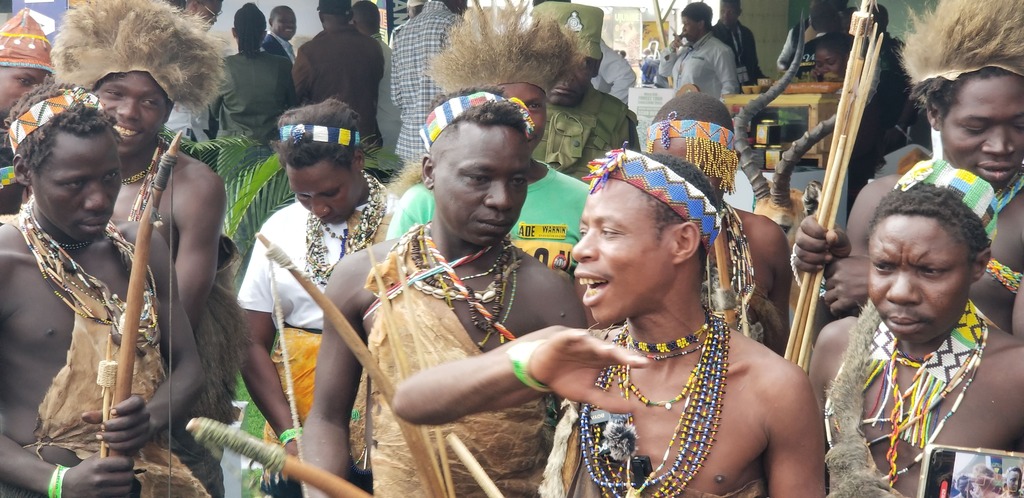Your Detailed Guide: What Makes the Hadzabe Tribe So Unique?
Imagine waking up under the vast skies of the Tanzanian bush, the sun rising over Lake Eyasi as birdsong replaces any need for an alarm. For the Hadzabe people, this isn’t a romantic getaway or a digital detox—it’s everyday life. As one of the last remaining hunter-gatherer tribes on Earth, the Hadzabe offer a living glimpse into how humans survived tens of thousands of years ago.
Let’s journey into their world to understand what makes them so incredibly unique—and why their wisdom may be more important than ever before.

What Makes the Hadzabe Tribe So Unique?
1. Ancient Roots: Living Links to Humanity’s Past
The Hadzabe (also known as Hadza) have lived around Lake Eyasi in northern Tanzania for at least 50,000 years. Genetic studies show they are unlike any other ethnic group, offering rare insight into ancient human DNA.
This isn’t just longevity—it’s resilience. Their survival, despite waves of migration, colonization, and modernization around them, underscores how their adaptive knowledge and minimalist lifestyle work in harmony with nature.
*One anthropologist called the Hadza “a genetic time capsule of pre-agricultural humanity.”
2. Daily Life in a True Hunter-Gatherer Society
The Hadzabe don’t farm, herd animals, or build permanent shelters. Instead, they live entirely off the land. Men hunt using handmade bows tipped with a natural plant poison. Women gather tubers, berries, and baobab fruit.
They move camp seasonally, forming small groups of 20-30 people that are fluid and non-hierarchical. They share everything they gather or hunt that day.
This lifestyle isn’t just sustainable—it’s remarkably effective. In a world struggling with overconsumption, the Hadzabe demonstrate how little one actually needs.
3. The Honeyguide Bird: A Forgotten Alliance
Few relationships in nature are as astonishing as that between the Hadzabe and the greater honeyguide bird. When a Hadza hunter whistles a special call, the bird responds, leading him to hidden bee hives.
After the honey is harvested (with the aid of smoke and courage), the hunter eats the honey, and the bird feasts on the leftover beeswax.
This cooperation is so rare that it defies modern science’s understanding of interspecies communication.
4. Their Gut Microbiome: A Time Capsule of Health
Unlike modern urban dwellers, Hadzabe guts are teeming with microbial diversity. Their microbiome is rich in bacteria nearly extinct in Western populations.
Scientists believe these microbes could hold answers to rising rates of obesity, autoimmune disorders, and diabetes.
Stanford researchers found Hadza gut bacteria varied by season, an adaptation unseen in any other human group.
This isn’t just unique—it may be revolutionary for medicine.
5. Language Unlike Any Other: Hadzane
The Hadzabe speak Hadzane, a click-based language with no written form and no known relatives. It’s classified as a linguistic isolate, and fewer than 1,000 people speak it fluently.
The language evolves rapidly, and it’s passed down through storytelling and communal songs.
It’s not just a language. It’s an oral library of ecological wisdom, migration patterns, and shared memories.

6. No Chiefs, No Classes: A Radically Equal Society
In Hadzabe society, no one is in charge. Leadership is temporary, decisions are made by group consensus, and no one hoards resources.
Generosity is status. Selfishness is scorned.
When disputes arise, people simply move camps. No jails, no armies—just human harmony in practice.
7. Spirituality Rooted in the Land and Stars
The Hadzabe are animists. They believe spirits inhabit the trees, animals, and ancestors in the sky. They perform the epeme dance during new moons, a ritual led by men who’ve earned the right to eat large game.
Myths speak of tall giants, a primordial sun, and the first hunter who taught them to live with the land.
Their beliefs are not just folklore—they’re a spiritual map of survival.
8. Modern Pressures: Struggling to Remain Unchanged
Though protected by the Tanzanian government, the Hadzabe face mounting pressure from agriculture, tourism, and land development. Their territory has shrunk drastically.
Yet, they’ve negotiated land-use agreements and now collaborate with NGOs to preserve their way of life.
Their struggle is not about resisting change—it’s about choosing what to keep.
Related Blog post: Top Maasai Cultural Safaris in Kenya (2025)
Frequently Asked Questions (FAQ)
Who are the Hadzabe and where do they live today?
They are indigenous hunter-gatherers living around Lake Eyasi in Karatu District, northern Tanzania.
Do the Hadzabe still live traditionally?
Yes, many Hadzabe still hunt, gather, and live in seasonal camps without agriculture or permanent homes.
What makes Hadzane language unique?
It’s an oral-only click language unrelated to any other, spoken by fewer than 1,000 people.
How do Hadzabe interact with honeyguide birds?
They use special calls to summon the bird, which guides them to beehives. They share the wax.
What can scientists learn from Hadzabe gut bacteria?
Insights into ancient microbial diversity that could help treat modern illnesses.
Do Hadzabe have religious leaders?
No formal leaders exist. Rituals are led by elders but the society remains egalitarian.
What challenges do they face today?
Land loss, climate change, and cultural dilution due to modern pressures.
Can tourists visit the Hadzabe?
Yes, ethical cultural tours exist but must be approached with respect and sustainability.
Conclusion: Why the Hadzabe Matter More Than Ever
The Hadzabe are not relics of the past—they are protectors of a future we may need. Their lifestyle, language, health, and harmony offer not just insight, but a quiet challenge to a modern world obsessed with more.
“We live by moving with the animals, listening to the birds, and drinking from the same places as our grandfathers,” said a Hadza elder. “Why would we change?”
As travel, science, and awareness expand, we have a chance to learn from them—not as tourists, but as students of what it means to be human.
Ready to experience the Hadzabe’s world for yourself with our cultural tours?
